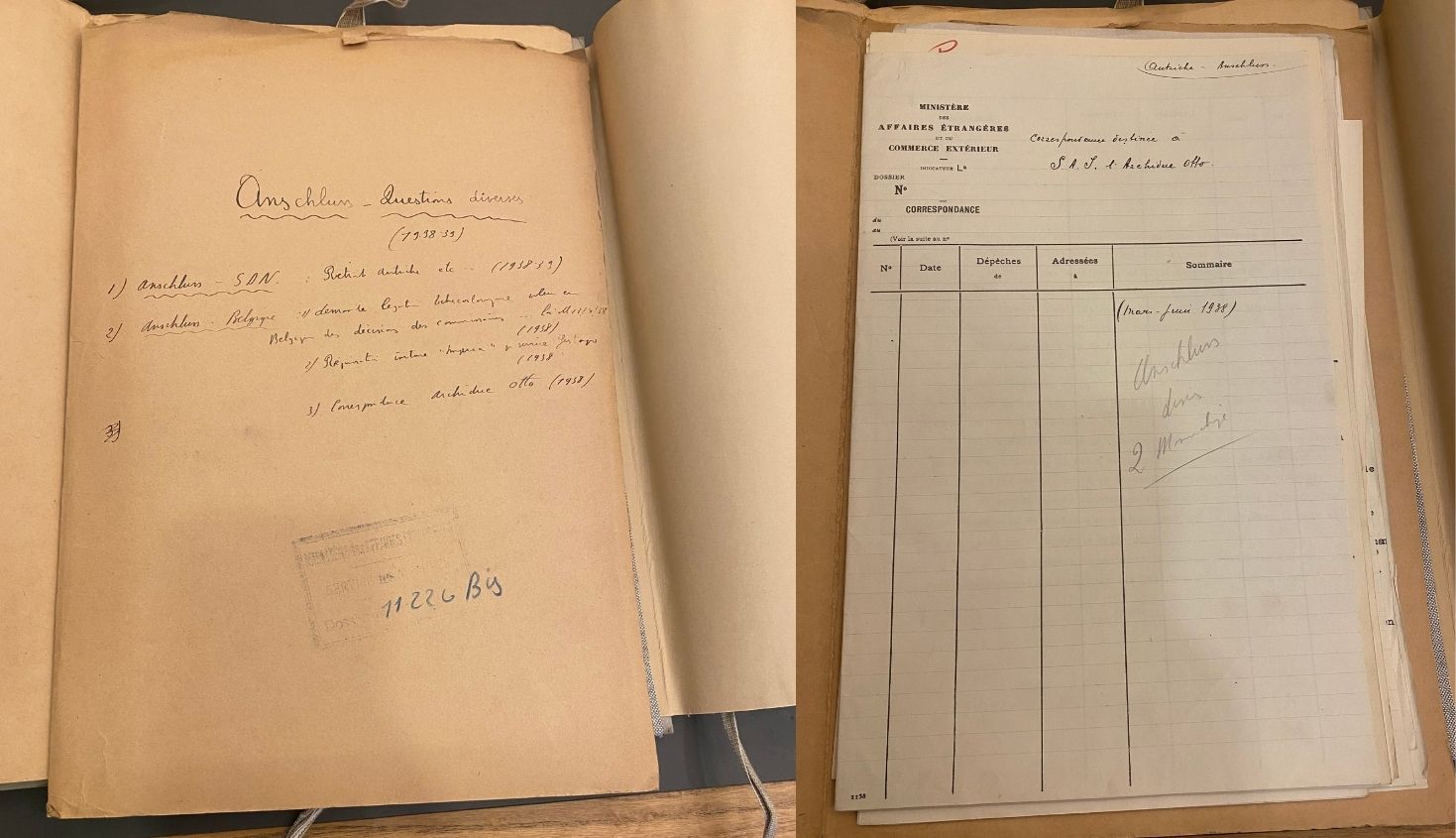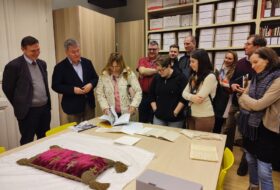The former Crown Prince lived in Belgium with his family from 1929 to 1940, and 90 years ago, Otto von Habsburg studied and defended his doctoral thesis at the Catholic University of Leuven, which is celebrating its 600th anniversary today. However, the Kingdom of Belgium had been devoting special attention to the fate of the last monarch of the Austro-Hungarian Empire and his loved ones long before 1929, according to the diplomatic documents examined by Gergely Fejérdy in Brussels.
The work began in 2023 at the Archives of the Belgian Ministry of Foreign Affairs, where numerous records were discovered that shed light on previously largely unknown aspects of the life of Otto von Habsburg and his family. This time, once again, many intriguing details surfaced, such as the fact that as early as 1922, the Belgian government was already in favour of providing the exiled royal family with adequate financial support, and of allowing them to settle in Spain after the death of King and Emperor Charles. At least, this is what the correspondence between the Belgian representative on the Council of Ambassadors, which was established following the peace negotiations that concluded the First World War, and the Brussels government reveals.
It has also been ascertained that Adrien Jules Emmanuel Nieuwenhuys (1877–1952), Belgium’s envoy in Vienna, had conveyed messages between Otto von Habsburg and Prince Karl Emil Fürstenberg (1867–1945) through ciphers (coded diplomatic telegrams) at the time of the Anschluss in 1938. The former heir to the throne relayed a manifesto to the future Czech foreign minister – the grandfather of Karel Schwarzenberg, who passed away in 2023 – urging him to persuade the legitimist camp to withdraw from politics, lest they be harmed. He also sent a general manifesto to the Belgian Embassy in Vienna, which had been neutral since 1936, to be circulated among a broader Austrian legitimist community.
Our colleague’s research, which complements aptly the processing of Otto von Habsburg’s heritage, has been greatly assisted by Chief Archivist Liam O’Sullivan. We first met him in November 2024, when he represented his country at the European Union Diplomatic Archives’ (EUDiA) conference in Budapest, organised during the Hungarian Presidency of the Council of the European Union, which event our Foundation partly hosted.
During his trip to Brussels, Gergely Fejérdy paid a visit to Pol De Witte, Director General of the Belgian foreign affairs institute, Egmont Institute, with whom he discussed current international topics and the contribution of Otto von Habsburg to the European Parliament. The Deputy Director of our Foundation also met with the Belgian Knight of the Order of the Golden Fleece, Count Rodolphe de Looz-Corswarem, who also visited our Foundation recently, and who maintains close ties with the Habsburg family and is well acquainted with their Belgian connections. Personal experiences with the former Crown Prince, the life of Emperor Charles and Empress Zita, and the appropriate historical exploration of them were also discussed. The receptiveness and curiosity towards our Foundation were palpable at both encounters, and the possibility of organising joint events and conferences was raised.


